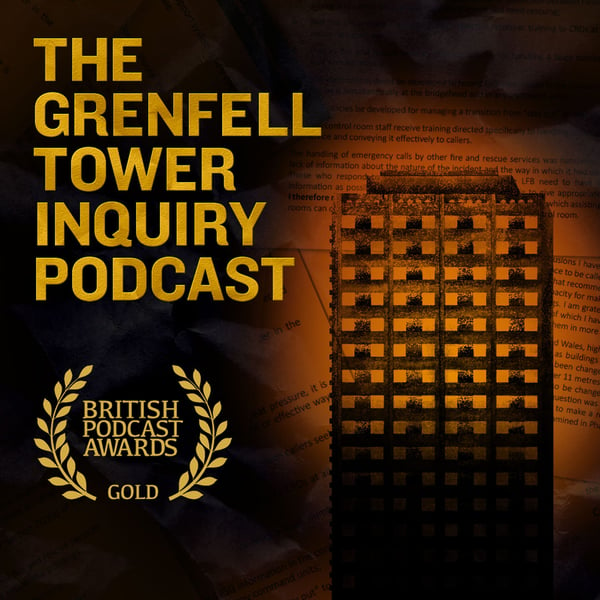103 Expert Witness: Professor David Purser
The Grenfell Tower Inquiry Podcast
BBC
4.8 • 627 Ratings
🗓️ 29 November 2018
⏱️ 19 minutes
🧾️ Download transcript
Summary
Expert witness Professor David Purser believes people are more likely to have died from smoke inhalation than from exposure to heat and flames.
During a presentation to the inquiry Professor Purser explained how irritants and gases in the smoke would have affected residents and impeded their escape.
Producers Elisabeth Mahy and Kate Lamble Researcher Olivia Beazley Contact us via email: [email protected]
Transcript
Click on a timestamp to play from that location
| 0:00.0 | BBC Sounds, Music, Radio, podcasts. |
| 0:05.1 | Hello, this is the Grenfell Tower Inquiry podcast, reporting every day the inquiry sits. |
| 0:10.4 | I'm Eddie Mayer, and today's witness was Professor David Purser. |
| 0:14.3 | He's an inhalation toxicologist and fire specialist, |
| 0:18.0 | who's been asked to look into the causes of incapacitation and death at Grenfell. |
| 0:22.3 | He's also looked at the toxicity of materials in the tower. |
| 0:25.9 | And so I really need to know how this smoke once formed, either inside or outside the tower, |
| 0:31.8 | has moved in and around the flats and the various spaces in the tower with time. |
| 0:36.3 | And I'm particularly concerned about when the smoke got into the lobbies at Grenfell on different floors, |
| 0:43.7 | because this, I feel, was a key stage in the incident. |
| 0:48.4 | David Perser told the inquiry that it's almost impossible to recreate the exact smoke conditions at Grenfell, |
| 0:54.9 | so he's based his evidence on a wider understanding of fires in other multiple occupancy buildings. |
| 1:01.6 | Referring to a graph, he explained the importance of the time between people first being |
| 1:06.0 | alerted to a fire and their escape. |
| 1:08.7 | And generally speaking, if people start to be alerted and warned early on and they start to |
| 1:13.6 | move early on, there's usually a sort of golden early period during any fire when people can make a safe escape. |
| 1:22.6 | The problem with fires, as illustrated by this curve here, is that they tend to, the rate of which they get worse, |
| 1:29.6 | tends to get exponentially greater. So if you delay, then you get caught by this time, period |
| 1:35.6 | when the conditions can very, very rapidly deteriorate. Professor Pursa said there are three |
| 1:41.8 | hazards he's looked at, the visibility and density of the smoke, asphyxating gases, and heat. |
| 1:49.0 | He told the inquiry people can actually withstand smoke of quite a high temperature. |
| 1:53.1 | At 200 degrees centigrade in air, it's possible for volunteers to tolerate that for several minutes before they start to feel |
... |
Please login to see the full transcript.
Disclaimer: The podcast and artwork embedded on this page are from BBC, and are the property of its owner and not affiliated with or endorsed by Tapesearch.
Generated transcripts are the property of BBC and are distributed freely under the Fair Use doctrine. Transcripts generated by Tapesearch are not guaranteed to be accurate.
Copyright © Tapesearch 2025.

